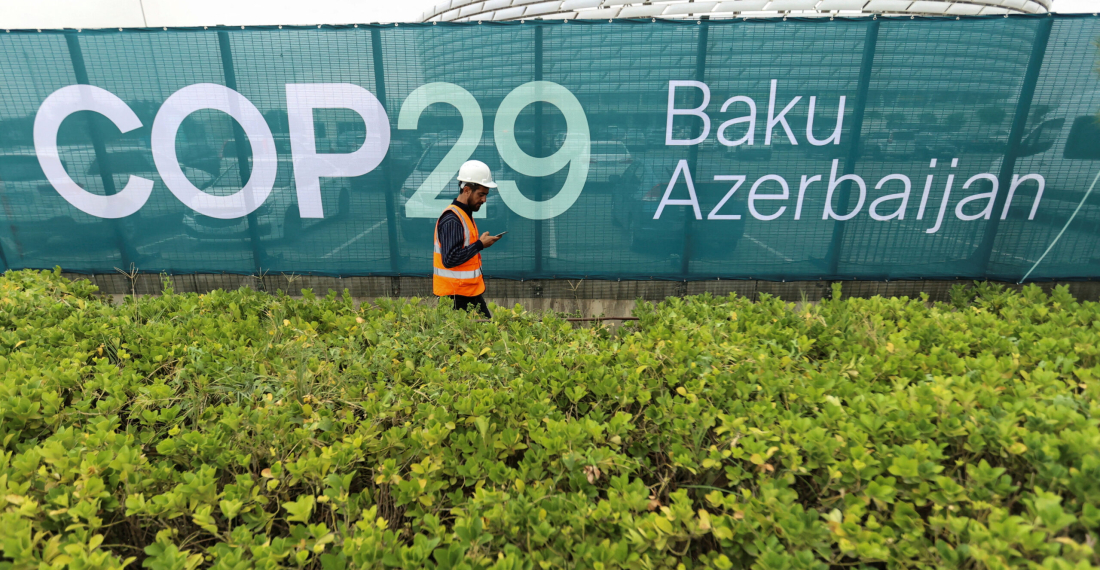November marks the fourth anniversary of the end of the 2020 Karabakh war. It was also the month considered as an informal deadline for initialling or signing some kind of document ending the conflict between Yerevan and Baku or at least a joint statement cementing points agreed in peace talks to date. Instead, having failed to do so by the time of this month's United Nations Climate Change Conference COP29 in Baku, and with Yerevan effectively shunning the event, Azerbaijan says that negotiations will now resume in December. As usual, Azerbaijan says Armenia must change its constitution. Armenia refuses to do so – or at least not until other constitutional changes are put to referendum still most likely in 2027.
That is unfortunate and a far cry from December last year when Armenia and Azerbaijan issued a unique joint statement supportive of Baku’s bid to host COP29, fuelling speculation of an agreement within a year. Almost three dozen Armenian detainees imprisoned in Baku were repatriated then as were two Azerbaijanis held by Yerevan.
It is worth noting, incidentally, that many pro-opposition commentators in Armenia and its Diaspora were reluctantly supportive of Yerevan attending the event in Baku if the remaining detainees, likely with the exception of Karabakh’s de facto ethnic Armenian leadership, were set free too. Though it was unclear whether such a deal was even possible let alone considered, the government only voiced such a requirement last week when National Assembly Speaker Alen Simonyan articulated it. Otherwise, ever since Baku invited Yerevan in the summer, officials instead avoided any questions about attendance.
Indeed, when COP29 started in Baku on 11 November, Deputy Foreign Minister Vahan Kostanyan still refused to clarify the situation despite Simonyan’s remarks. Foreign Minister Ararat Mirzoyan had already departed for Sweden on a two-day visit as well, though this would not have prevented a low-level delegation from participating at the high-profile event. Moreover, the signal it would send out at this stage of peace talks would have been unprecedented. Nobody was really expecting Armenian Prime Minister Nikol Pashinyan to attend COP29, though other Armenians have visited Azerbaijan mainly for international conferences in the past. At any rate, Azerbaijani President Ilham Aliyev’s response was nonchalant. It was up to Armenia to decide.
Ironically, on the second day of COP29, the Armenian government blocked an opposition resolution calling for the release of those same prisoners. It is uncertain whether Simonyan’s comments were simply a negotiation tactic or not. So far, it is mainly among nationalist segments in the diaspora, especially those opposed to normalised relations, that launched a campaign against COP29 instead. That might have even spread to neighbouring Georgia where Swedish environmental activist Greta Thunberg unexpectedly materialised. Boycotting COP29 in Baku, Thunberg seemed as much concerned with echoing maximalist and nationalist narratives regarding Karabakh. Presumably on an overland journey to Georgia, she also met ethnic Armenian activists in Türkiye. In Georgia, she instead focused on a tiny group of left-wing dissident and feminist activists in Tbilisi.
There was no talk of a peace agreement, regional environmental protection, or cross-border cooperation to tackle the huge problem of climate change. A small event held in Yerevan days later, ostensibly organised by Armenian environmental NGOs likely also opposed to current negotiations likely staged to also provide Thunberg with a platform, focused almost entirely on environmental damage caused by Azerbaijan in Karabakh while ignoring the almost complete devastation of the eco-system as well as entire rural and urban centres in the seven regions formerly occupied by Armenia and Karabakh over almost three decades. Meanwhile, nobody in Tbilisi seemed to care given last month’s controversial elections in Georgia. Even local activists were critical of Thunberg, who some accused of attempting to ‘hijack’ their own political protests for her own sake, criticising her pro-Palestinian and anti-capitalist positions. Some even demanded she immediately leave the country.
Not that any of this mattered. November also saw the re-election of former U.S. President Donald Trump. Along with the issue of climate change, it was this that many consider to cast the darkest shadow over any positive developments emerging from COP 29. Not that there aren’t major problems in Azerbaijan, but the issue at hand was an event to somehow agree on an effective global response to climate change. Trump could frustrate that.
Nonetheless, even with Armenia’s absence, there was at least some good news when U.S. Ambassador to Baku Mark Libby announced that hydrologists and engineers from Armenia and Azerbaijan were working together on integrated water management for transboundary rivers. No further details are known but if a peace treaty does not surface again this year, and along with border delimitation and demarcation, it does at least demonstrate that some cooperation can still occur. Pashinyan has also since said that an informal chat with Aliyev at the recent BRICS Summit in Kazan on unblocking regional communications was positive. Such developments will be crucial if he is to demonstrate that there have been some successes from his “peace agenda” even if in lieu of an actual treaty.
Regardless, make no mistake, it is high time for Armenia and Azerbaijan to sign that already long overdue agreement, but even fewer now expect such a breakthrough by the end of the year. After hearing the same promises for the past three years, the danger is that the process could again become an imitation of talks just as it had prior to the last war. That must not happen. The lives of future generations in the entire region depend on it.







